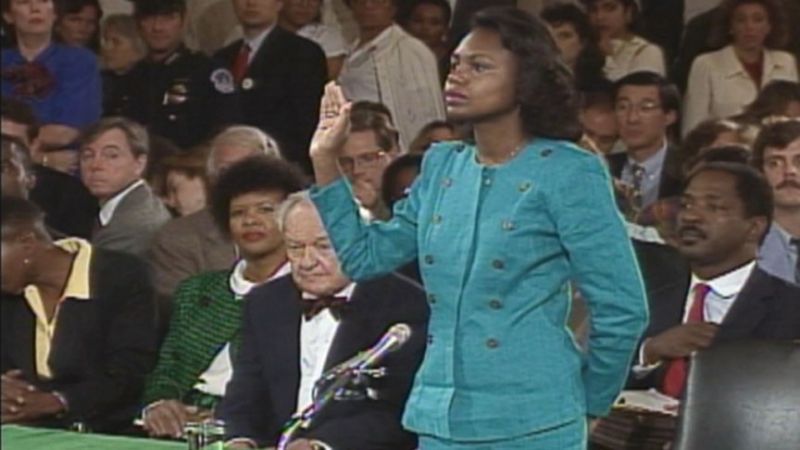Anita Hill, #MeToo, Alaska Politics: The Intangibles Roiling Kavanaugh’s Confirmation
There is a lot a play that could impinge Judge Brett Kavanaugh’s confirmation process.


Brett Kavanaugh’s confirmation to the Supreme Court has gone from virtual slam dunk for Republicans to a possible catastrophe.
That’s after raucous confirmation hearings that raised questions about Kavanaugh’s past statements about race, women’s health, and other controversial issues.
But the biggest bombshell came late last week when a woman claimed Kavanaugh sexually assaulted her when they were both teenagers.
Now, a big question is whether the accuser, California professor Christine Blasey Ford, will testify in front of Congress about those allegations.
Already there are questions about what this might mean for the votes of at least two Senators who could be on the fence about Kavanaugh’s confirmation; both women who are known as more independent-minded than many of their Republican colleagues. Susan Collins of Maine and Lisa Murkowski of Alaska are both thought to be wild cards in this debate, especially now that these accusations have surfaced.
Where will they come down on this issue?
Libby Casey, on-air reporter and anchor covering politics and accountability for The Washington Post, covered Lisa Murkowski for years during her time as a political reporter in Alaska.
The powerful Alaska Federation of Natives’ (AFN) recently announced its opposition to Brett Kavanaugh’s confirmation due to past statements and rulings regarding Native rights. That was a major development from one of Murkowski’s key constituencies. But, it “didn’t seem to be enough” to stop Murkowski from voting in favor of Kavanaugh’s confirmation, says Casey. “But now, everything is different.”
Casey also recently interviewed Anita Hill about her ordeal in front of Congress during confirmation hearings for now-Justice Clarence Thomas in 1991.
“[The Kavanaugh ordeal] does hearken back to the days of Anita Hill,” says Casey. She says Hill was willing to tell “very personal and scarring experiences,” despite the odds she faced.
Hill accused Thomas of workplace sexual harassment. But Hill faced an all-male, all-white Senate Judiciary Commitee, who disbelieved and discredited her account.
When Casey asked Hill in recent months what she would say to her 35-year-old self in 1991, Hill responded this way:
“I would tell the 35-year-old me, that yes there have been women who have come before you. It’s part of an arc. It is an arc that we are now seeing made more visible because of the Me Too movement.”
“I would say, ‘Change will come. It’s not going to come in an instant. It’s not going to come because of one episode. It’s not going to come just because you testify. But you are going to be a part of history, and history is going to unfold in a way that will ultimately make the world a more just place for everyone.'”
To hear more from Casey on Detroit Today, click on the audio player above.
